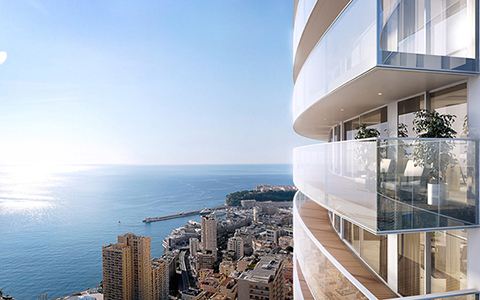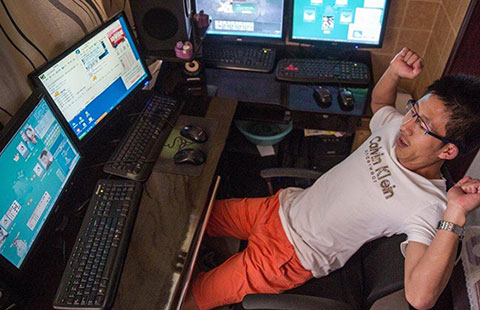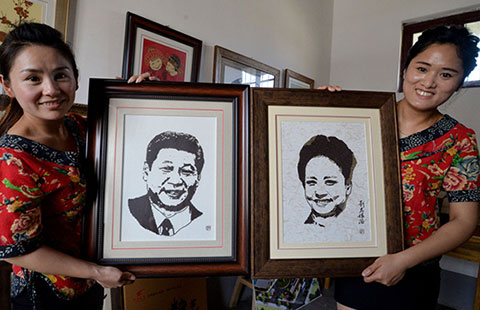Cycling fans put sector on the road to recovery
By Xu Junqian (China Daily) Updated: 2015-06-15 07:39"Sales have been better than we expected, especially considering that we have just started and how bikes are becoming increasingly marginalized in Chinese cities," said Gao.
Scores of units have been sold so far from their one and only store on Taobao.com, China's largest online shopping bazaar. The team could yet afford to run a brick-and-mortar store. Most of his customers already have a car, he said.
"Bicycles offer an alternative. They speak for a responsible, energetic and peaceful lifestyle, but are no longer essential in daily life," he added.
When Gao was a child in the 1980s, bicycles, together with sewing machines, watches and radios were considered the four most valuable goods a household could own. They were status symbols indicating a well-to-do household. The cost of a bicycle, around 150 yuan, was equivalent to up to two months' income for many families.
The average price of the 30 million bikes bought each year in China stands at around 300 yuan, according to industry insiders. The median annual income of a household in Shanghai was 47,710 yuan in 2014, up 30-fold from 1985.
All of which makes them highly affordable but also fairly low in quality. Some are in such bad shape that utility cyclists treat them as disposable goods to be chucked away and replaced each year.
Together with his team, which includes two architects, one diehard fan of fixed-gear bikes and a veteran technician from one of the country's largest bike factories, Gao wants to help change the shabby image that bicycles in China have picked up.
Their bikes have closer and fitter mudguards, so that the user's pants won't get dirty on rainy days. Moreover, the seat height is lower than that of a mountain bike while the sitting posture is semi-upright. Gao said this was done intentionally to help tired commuters wake up in the morning.
The revitalized interest in bikes, largely resulting from the worsening traffic conditions in mega-cities like Shanghai and people's growing desire to keep fit, has given rise to many similar businesses.
In Shanghai alone, bicycles stores are sprouting up with offerings ranging from vintage models to cutting-edge high-tech machines.
Italian brand ABICI recently set up a 6-meter-high all-white showroom in the city's downtown to promote its bikes and how the models are handmade in Italy and then exported to China.
London's Brompton Junction, which makes folding bikes, warns its Shanghai customers that its models might become "an obsession", as well as "a solution to urban living problems". When folded, they are about the size of a suitcase.
ABICI charges 6,000 yuan for its bicycles. The starting price of a Brompton Junction model is double this.
"For me, bikes were an integral part of my teenage years," said Gao, adding that it can be significantly quicker to get around a gridlocked city on two wheels these days than traveling by car or bus.
- Indoor golf driving boom in the industry
- Value of stocks rises above $10t, margin debt reaches new record
- IMF team to assess yuan
- Top 10 luxury houses in the world
- Alibaba announces new deals in television, movie industries
- VW Finance China partners 5 major dealer groups
- China sees more firms established
- US sets final dumping margins on Chinese tires

















